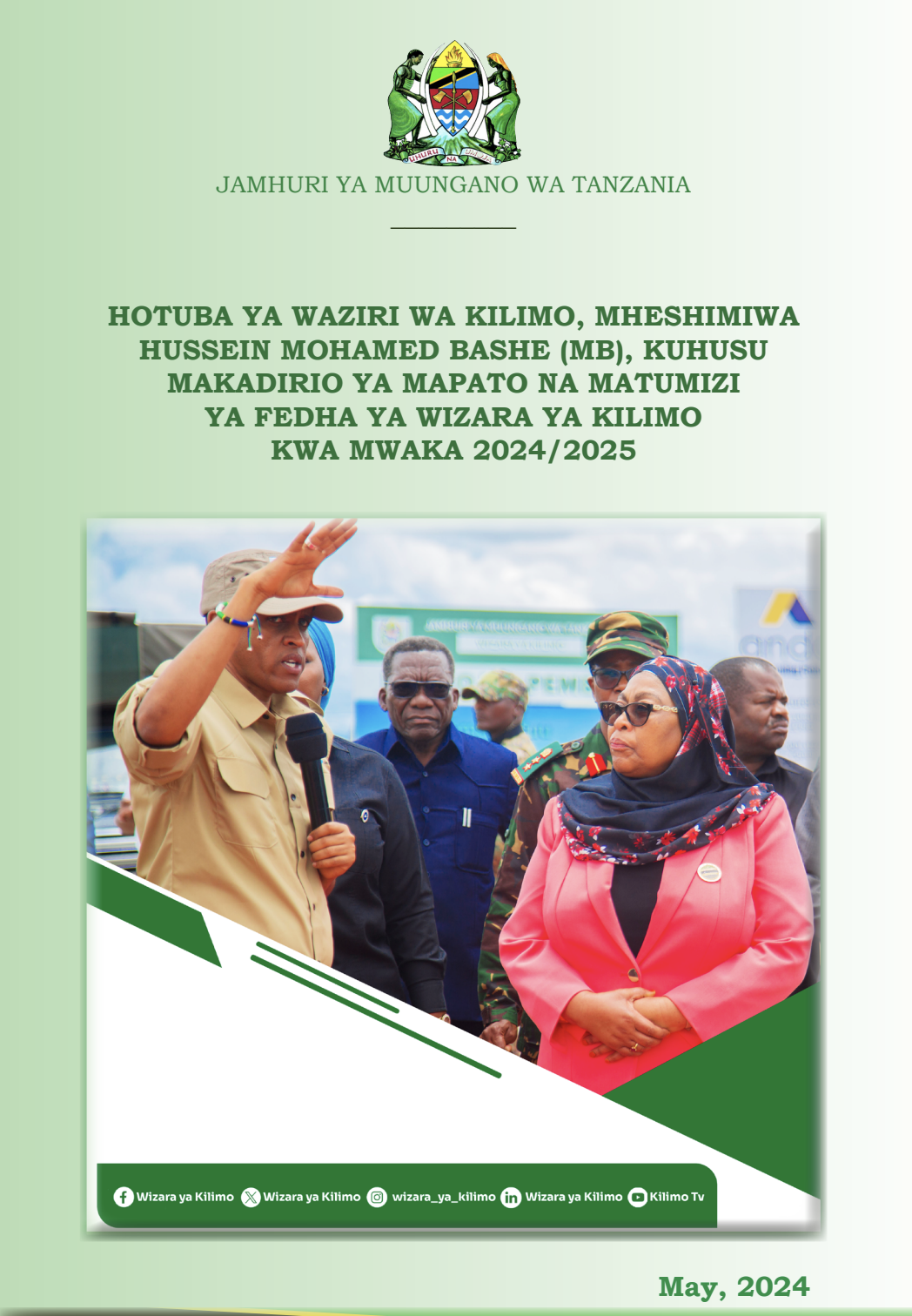Kilimokwanza.org Team
In Tanzania, agriculture is not just a means of sustenance but a pivotal sector for economic growth and poverty reduction. Recognizing the sector’s potential, the Tanzanian government has actively engaged international organizations such as the World Bank, International Monetary Fund (IMF), and European Union (EU) to bolster its agricultural sector. These partnerships are central to the strategic development initiatives that are transforming agriculture in Tanzania.
The significance of these international partnerships was prominently featured in the 2024/2025 budget speech delivered by Hon. Hussein Mohamed Bashe, Tanzania’s Minister of Agriculture. In his address, Minister Bashe underscored the critical support these organizations provide: “We extend our profound gratitude to our international partners including the World Bank, IMF, and the European Union for their steadfast support in our agricultural endeavors,” he stated. This acknowledgment highlights the multifaceted role these entities play in financial support, technical expertise, and policy guidance.
Role of International Organizations:
- The World Bank: The World Bank has been instrumental in funding projects that enhance agricultural productivity and resilience in Tanzania. Their investments often focus on infrastructure development, such as irrigation and rural road construction, which are crucial for enhancing agricultural supply chains. Furthermore, the World Bank’s expertise in sustainable practices helps local farmers adopt environmentally friendly agricultural methods, ensuring long-term sustainability.
- The International Monetary Fund (IMF): While primarily focused on macroeconomic stability, the IMF supports Tanzania’s agricultural sector by providing policy advice and financial stability programs that create a conducive environment for agricultural investments. The IMF’s guidance is crucial in structuring subsidy programs and fiscal policies that support smallholder farmers and agricultural businesses.
- The European Union (EU): The EU’s contribution is predominantly channeled through developmental aid and trade agreements that promote agricultural exports from Tanzania to European markets. The EU also supports capacity building initiatives that enhance agricultural education, training, and research in Tanzania, fostering innovation and modern agricultural techniques among Tanzanian farmers.
Impact and Analysis: The collaboration with these international organizations has tangible impacts. For instance, improved infrastructure has not only increased market access for farmers but also reduced post-harvest losses, significantly boosting the income of rural households. Capacity building efforts have equipped farmers with better farming techniques and knowledge, leading to increased yields and sustainable farming practices.
However, challenges remain in ensuring that the benefits of these partnerships are evenly distributed and reach the most vulnerable farmers. Effective implementation of these projects and continuous monitoring are essential to maximize their impact.
As Tanzania continues to leverage these international partnerships, the focus is shifting towards more sustainable and technologically driven agricultural practices. “Our aim is not only to enhance our agricultural productivity but also to ensure that our agriculture is sustainable and technologically equipped,” Minister Bashe elaborated in his speech.
The role of international organizations in Tanzania’s agricultural sector is a beacon of how strategic global partnerships can be harnessed to foster sectoral growth and economic development. Moving forward, these partnerships will be crucial in addressing the evolving challenges of food security, climate change, and economic diversification. By continuing to engage with these global entities, Tanzania is well-positioned to transform its agricultural landscape, ensuring prosperity for its farmers and resilience for the economy.
